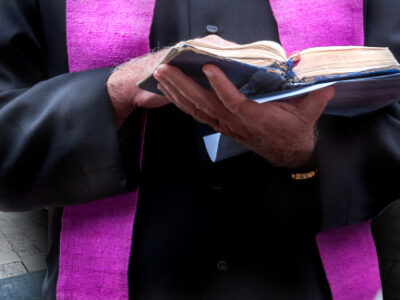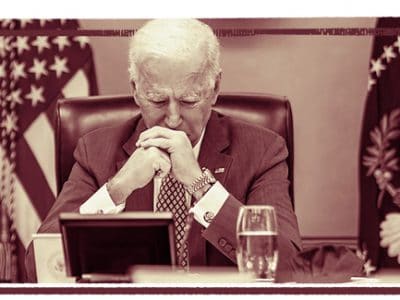The confirmation by the Episcopal Church, U.S.A., of Bishop Gene Robinson, a gay clergyman openly living in a homosexual relationship, is part of an immense struggle within the so-called seven “mainline” protestant denominations. In the Presbyterian Church, U.S.A., in which I serve as an elder, this three-decade old debate continues to confound and may well result in a split between liberal and conservative factions.
The issue of homosexuality reflects a larger contest between two increasingly irreconcilable groups within the mainline churches: liberal-progressives with a secular-humanistic worldview and conservative-evangelicals who believe the universe revolves around the will of a sovereign God whose eternal and immutable truth is revealed in the Bible.
Conservative-evangelicals believe Christians are called to obey the Bible, the infallible revelation of God’s Word to which nothing can be added or deleted. For them, definitive truth is unchanging and immutable. Liberal-progressives, by contrast, believe the Bible merely contains the words of God while the Holy Spirit reveals truth. For liberals, relative truth contained in the Bible may be expanded by truths found in religious texts like the Hindu Bhagavad Gita and Islam’s Koran. Conservatives put themselves under Biblical authority while liberals believe they have the insight to determine what portions of portions of the Bible, along with other religious texts, may be temporally and culturally relevant. Consequently, while conservative-evangelicals read out of the Bible concepts to apply to life within a worldly culture, liberals find meaning by reading the culture into the Bible.
In the debate over the role of gays in the Church, conservative-evangelicals hold that homosexual behavior is a sin based on Biblical proscriptions. Liberals reject or reinterpret portions of the Bible dealing with homosexuality. They claim these passages written two to three millennia ago, exclusively by men for another culture, must be considered in light of today’s culture.
Therefore, the meaning of Leviticus 18:22, “With a male you shall not lie as though lying with a woman: it is an abomination” is clear to conservatives: homosexual intercourse is a sin. Liberals respond that because Christians generally do not adhere to other passages in Leviticus that forbid eating meat containing blood, wearing clothes of mixed weave or having intercourse with a woman during menstruation, it is inconsistent if not hypocritical for conservatives to hold to one portion of the Bible while not abiding by the others. Ergo, anyone who eats rare beef cannot condemn homosexual behavior as sinful. For conservatives, there are moral imperatives that go beyond temporal cultural norms.
Invariably, in this debate someone will declare, “At least we can all be followers of Jesus.” But do conservatives and liberals embrace the same concept of Jesus’ For conservatives, Jesus is the fully human, fully divine Son of God. The virgin birth and physical resurrection are essential to Christ’s validity as the substitutionary atonement for sin. For liberals, Jesus is a God-inspired person and a misunderstood social reformer unjustly condemned by a Roman imperial governor. Since liberal believe all religions issue from a universal concept of God, they are uncomfortable with the exclusivity implied by the unique nature of Christ as God incarnate.
Liberal and conservative views of sin also are irreconcilable. Liberals, believe humans are basically good. Sin results from corrupted political systems and cultures amenable to change. Since liberals view sin as a result of cultural imperfection, human ignorance, social maladjustment and bigotry, if we improve education, increase tolerance, and achieve greater economic equality people will do the right thing. Liberals, more than conservatives, embrace political activism and are more likely to incorporate it into their church missions.
Conservative Christians, by contrast, believe naturally sinful humans are disposed to rebel against God. Helpless to save themselves, people must rely on God’s grace. The conservative-evangelical belief that Jesus is the only way to salvation makes for a concept of Christ far different from that of liberal-progressives who embrace inclusiveness as a moral imperative.
The confirmation of Bishop Robinson by the Episcopal Church U.S.A. brings to the fore the question of whether liberals and conservatives, groups with radically different worldviews, can co-exist productively under one ecclesiastical roof? Liberals, who dominate the bureaucratic hierarchy in mainline churches, reluctantly enforce rules progressives find objectionable, such as those forbidding ordination self-affirming, unrepentant homosexuals and forbidding gay marriage. Over time, given liberal persistence and conservative flight, progressives inevitably will prevail. Conservatives, by contrast, believe a sovereign God controls the universe and that, indeed, “many are called but few are chosen.” Their consolation is in believing that the Church, as the body of Christ, is incorruptible in God’s eternal kingdom. Who wins’ God wins in His time. The Bible told me so.




